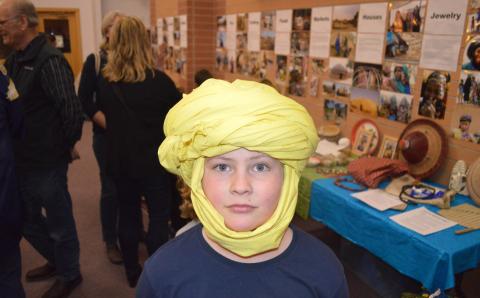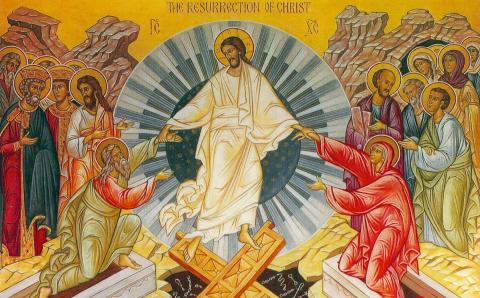As a child I loved to pull my parents’ wedding album from under the bookshelf that held the fiction. I would dust it off and page through, pausing at my favorites. My parents’ wedding color was red, matching the church’s Christmas trees decorated with white lights and red bows. Candles lined the aisle, and everything glowed.
But paging through it now, the glow and perfection are marred by my updated perspective.
In one photo, my grandfather lowers my mother’s veil over her face, shrouding her as he prepares to give her away like a gift.
It’s one of many images—my parents kneeling together to pray, leaning in to kiss, holding the knife together to cut the cake—but it’s the one that bothers me the most.
It’s a moment that doesn’t reflect my parents’ marriage. My dad didn’t ask for his father-in-law’s blessing before proposing to my mom. My parents have always been equals, so it’s strange to see my mother being given away, a gesture that hearkens back to arranged marriages.
According to Susan Waggoner, author of I Do, I Do! The Origins of 100 Classic Wedding Traditions, the presence of the father with the bride at a wedding was to intimidate the groom and make sure the arranged marriage actually took place. In our current culture, where people marry for love, it seems unhelpful to perpetuate a symbol that is no longer an accurate representation of marriage.
But because this tradition has become so ingrained in our culture, we—especially we Christians— latch onto it.
For Christians, a wedding is a sacred commitment two people make to each other and to God. For that reason, it should be approached with reverence and care. My concern is that Christians confuse the importance of weddings with the importance of outdated traditions. There seems to be a fear among Christians to let go of certain traditions, perhaps because we have let ourselves see them as integral to the Christian wedding ceremony. But just because something is traditional doesn’t mean it’s right—and it certainly doesn’t mean it’s sacred.
The Bible doesn’t give us detailed instructions on what a marriage ceremony should entail. We have the freedom to choose wedding traditions that suit us or to design our own. We should make sure those traditions represent us and our commitments.
My mother being given away at her wedding was a misrepresentation of my parents’ relationship. They followed the tradition because it was expected, but it was out of place in their marriage.
While I am uncomfortable with certain wedding traditions, I know there are plenty of people who have good reason to feel differently. As time passes, we give traditions new connotations. For some women, walking down the aisle with their dad is meaningful and beautiful. I don’t want to tell those women that they’re wrong, but I do think we should examine traditions to make sure they mean what we think they mean.
As a Christian community, it’s important to support people who decide to do away with certain wedding traditions, trusting that new traditions are being formed that honor the relationship and glorify God.
I hope to get married someday, and I hope to involve my parents in the ceremony. But I won’t have my dad give me away. My parents conformed to a tradition that made no sense in the context of their relationship. I hope that every part of my wedding will be a true representation of the commitment I want to make.
About the Author
April Otto is a graduate of George Fox University, Newberg, Oreg., who grew up in the Reformed tradition.








